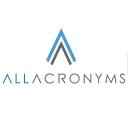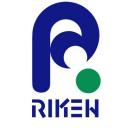NOVELTIES
MeSH is the U.S. National Library of Medicine's controlled vocabulary used for indexing articles for MEDLINE/PubMed. MeSH terminology provides a consistent way to retrieve information that may use different terminology for the same concepts. Use the MeSH database to find Medical Subject Heading Terms and build a search strategy. Registration not required.
Click here for more informationsPublished on 2011-04-15 14:34:10
Free online Acronyms and Abbreviations Dictionary. Quickly define the meaning for all acronyms and abbreviations Registration not required.
Click here for more informationsPublished on 2011-03-28 13:02:19
The site is organized around key concepts, explained by: animation, image gallery, video interviews, problems, biographies, and links. There are three main sections: Classical Genetics, Molecular Genetics, Genetic Organization & Control. Registration not required.
Click here for more informationsPublished on 2011-03-25 12:30:37
Various proteomic software Registration not required.
Click here for more informationsPublished on 2011-03-24 15:31:54
Lab Security and Basic Lab Techniques Registration not required.
Click here for more informationsPublished on 2011-03-24 03:13:59
miRDB is an online database for miRNA target prediction and functional annotations in animals. All the targets were predicted by a new bioinformatics tool, which was developed by analyzing thousands of genes impacted by miRNAs with an SVM learning machine. Common features associated with miRNA target binding have been identified and used to predict miRNA targets. miRDB hosts predicted miRNA targets in five species: human, mouse, rat, dog and chicken. Registration not required.
Click here for more informationsPublished on 2011-03-24 02:58:52
The web pages listed here comprise a powerful, conveniently-accessible, multi-platform statistical software package. There are also links to online statistics books, tutorials, downloadable software, and related resources. Registration required.
Click here for more informationsPublished on 2011-03-24 02:54:26
Primer3 Plus is the new improved web interface to the popular Primer3 primer design program. Registration not required.
Click here for more informationsPublished on 2011-03-23 18:40:12
The miRBase database is a searchable database of published miRNA sequences and annotation. Each entry in the miRBase Sequence database represents a predicted hairpin portion of a miRNA transcript (termed mir in the database), with information on the location and sequence of the mature miRNA sequence (termed miR). Both hairpin and mature sequences are available for searching and browsing, and entries can also be retrieved by name, keyword, references and annotation. All sequence and annotation data are also available for download. Registration not required.
Click here for more informationsPublished on 2011-03-20 10:25:11
TFBIND for online searching transcription factor binding sites (including TATA boxes, GC boxes, CCAAT boxes, transcription start sites (TSS)). This tool uses weight matrix in transcription factor database TRANSFAC R.3.4 developed by Dr. Wingender et al, and the cut-offs originally estimated by our research. Registration not required.
Click here for more informationsPublished on 2011-03-20 10:23:23

Add to my favorites
Remove from my favorites
European collection of authenticated cell cultures
Category: Cell lines
The European Collection of Authenticated Cell Cultures (ECACC) is one of four Culture Collections of the UK Health Security Agency. We supply authenticated and quality controlled cell lines, nucleic acids and induced Pluripotent Stem Cells (iPSCs). Registration not required.
Click here for more informationsPublished on 2011-03-20 10:20:05

Add to my favorites
Remove from my favorites
Mutation & Cancer cell lines
Category: Cell lines
Subcategories: Sanger
Cancer Genome Project has embarked on a systematic characterisation of the genetics and genomics of large numbers of cancer cell lines. Prior knowledge of their genetic abnormalities may allow more informed choice of cancer cell lines in biological experiments and drug testing and more informed interpretation of results. Registration not required.
Click here for more informationsPublished on 2011-03-20 10:15:42

Add to my favorites
Remove from my favorites
Category: Biomedical funding and jobs
Subcategories: Fellowships
PostdocJobs.com (or Postdoc.com) is the first niche recruiting channel to bring together recent Ph.D.s, professors, research institutions and other employers to find a good match. Over 1,000 universities, companies, research institutions and government agencies worldwide use our service for recruiting talented postdocs and scientists. Each month, over 100,000 Ph.D.s visit our website and seek postdoctoral opportunities. Jobs posted on our website are normally viewed 2,000 to over 5,000 times. PostdocJobs.com's vision is to be the premier source for employers to hire postdocs, research associates and scientists, and for recent Ph.D. graduates to find post-doctoral positions in their professional careers. Registration required.
Click here for more informationsPublished on 2011-03-11 04:54:16
ClinicalTrials.gov is a registry of federally and privately supported clinical trials conducted in the United States and around the world that offers up-to-date information for locating federally and privately supported clinical trials for a wide range of diseases and conditions. Registration not required.
Click here for more informationsPublished on 2011-03-01 05:58:53
The NCBO aims to be “the place to be” for biomedical ontologists across the globe. Registration not required.
Click here for more informationsPublished on 2011-02-11 12:52:41
NIF is a dynamic inventory of Web-based neuroscience resources: data, materials, and tools accessible via any computer connected to the Internet. Registration not required.
Click here for more informationsPublished on 2011-02-11 12:42:37
The genome-wide association study (GWAS) publications listed in this catalog establish genetic associations between hundreds of genomic loci and complex (multigenic)traits, many of them diseases. Only those attempting to assay at least 100,000 single nucleotide polymorphisms (SNPs) in the initial stage, are included here. Registration not required.
Click here for more informationsPublished on 2011-02-10 11:58:17
BRB-ArrayTools is an integrated package for the visualization and statistical analysis of DNA microarray gene expression data.The array tools package utilizes an Excel front end. Registration not required.
Click here for more informationsPublished on 2011-02-03 09:46:07
ProSight Lite is a free Windows application for matching a single candidate protein sequence and its modifications against a set of mass spectrometric observations. Registration required.
Click here for more informationsPublished on 2011-01-31 10:27:32
This page analyzes survival-time data by the method of Proportional Hazards regression (Cox). Given survival times, final status (alive or dead), and one or more covariates, it produces a baseline survival curve and covariate coefficient estimates with their standard errors, confidence intervals, and significance levels. Registration not required.
Click here for more informationsPublished on 2011-01-19 04:28:08


















